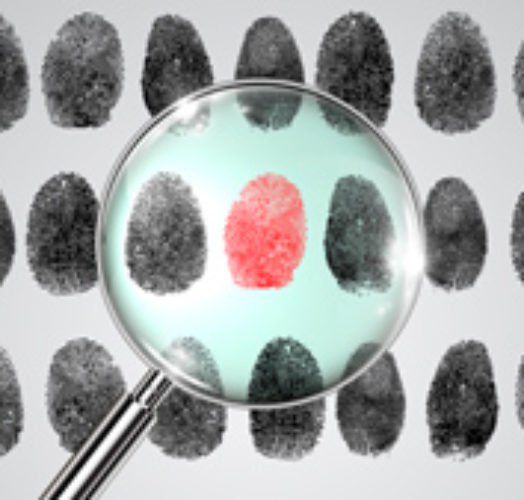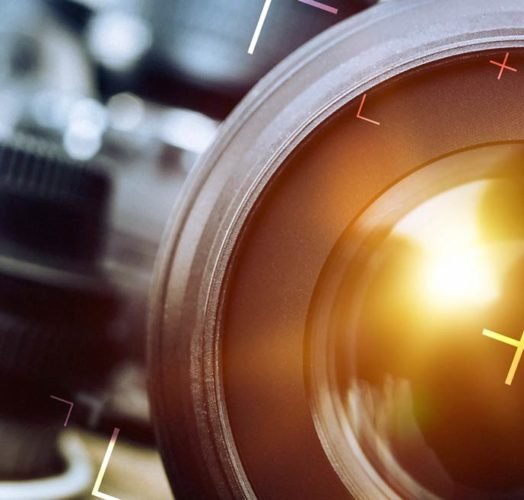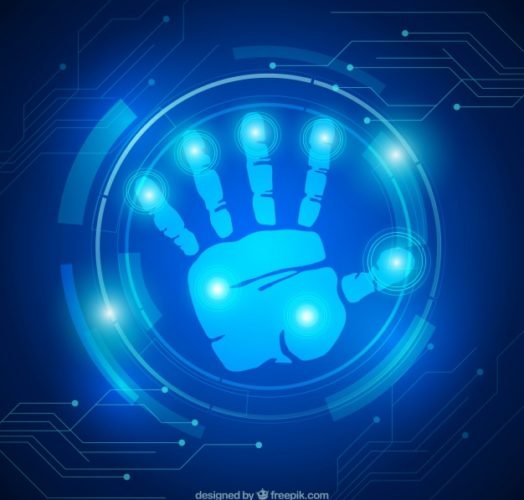
GIFS
Duration : 6 Months
Eligibility : Plus Two and Above
Forensic science is a vital instrument for the detection or investigation of crime and the administration of justice, providing crucial information about the evidence found at crime scene; Forensic Experts work both at the crime scene and in the laboratory often must be used in court, it is especially important that the training and education of forensic scientists provide a solid scientific background and a broad base in criminalistics. The validity of those results depends on the knowledge, skills, and experience of the forensic scientists working to obtain them. A forensic scientist must be capable of integrating knowledge and skills in the examination, analysis, interpretation, reporting, and testimonial support of evidence. According to the U.S. Bureau of Labor Statistics, the median hourly earnings of forensic science technicians are about $21.79 per hour, Means 1600 Indian Rupees per hour.
COURSE CONTENTS / SYLLABUS
- Forensic Sciences: Basics, Ethics, Rules, Laws, Procedures, Cross Examinations, Investigating the Crime Scene (The Crime Scene and the Collection of Evidence); Investigating and Processing Physical Evidence, The Microscope and Forensic identification of Hair and Fibers, Toxicology, Forensic Medicine, DNA and Serology
- Questioned Documents and Handwriting, Fingerprints, Tool marks and other impressions
- Firearms, Arson, Explosives and the Investigation of Bombings (Ballistics)
- Introduction to Crime, Criminology and Laws; Theories of Criminology; The Criminal Justice System;
- Criminal Profiling; How To Be Your Own Private Investigator; Crime against woman and child; Drug Addiction and crime; White Collar Crime; Political Crime; Property Crime; Violent Crime; Forensic Psychology, Anthropology, Forensic Engineering, Forensic Entomology, Wildlife Forensics and other important issues…

GIFS
Duration : 6 Months
Eligibility : Plus Two and Above
Introduction to Crime Scene Investigation; – Lo-card’s Exchange Principle; – Types of Evidence and Protecting the Evidence; Dealing with Suspect Persons, Witnesses and Family Members; – Identifying Physical Evidence; – Examination of glass and soil; – Role of Crime Scene Investigator; – Processing a Crime Scene; – Crime Scene Documentation; – Collecting the Evidence; – Crime Scene Photography and Sketching; – Chain of custody and Forwarding of different types of evidences to the laboratories; – Interpreting a Crime Scene; – Techniques for Handling Evidence; – Blood Spatter Analysis; – Reconstructing a Crime Scene; – Crime Scene Tool, Kits and Equipment etc…

GIFS
Duration : 6 Months
Eligibility : Plus Two and Above
Forensic science is a vital instrument for the detection or investigation of crime and the administration of justice, providing crucial information about the evidence found at crime scene, it is especially important that the training and education of forensic scientists provide a solid scientific background and a broad base in criminalistics. The validity of those results depends on the knowledge, skills, and experience of the forensic scientists working to obtain them. A forensic scientist must be capable of integrating knowledge and skills in the examination, analysis, interpretation, reporting, and testimonial support of evidence. Fraud examiners represent a variety of careers and professional backgrounds. Forensic accounting is hardly a new field, but in recent years, banks, insurance companies and even police agencies have increased the use of these experts. The increase in white collar crime and the difficulties faced by law enforcement agencies in uncovering fraud have also contributed to the growth of the profession. Many accounting firms believe that the market is sufficiently large to support an independent unit devoted strictly to forensic accounting. In court, the forensic accountant can be an expert witness, a consultant, or play other roles such as trier of fact, special master, court-appointed expert, referee, arbitrator, or mediator. A key piece of evidence is the report of the forensic accountant. For better practice and Earning- A person in this field should have experience in auditing or accounting and educational qualification in Accounting or a related field. According to various web resources- As of 2009, the starting salary ranges between $30,000.00 (21,87,150 INR )and $60,000.00 (43,74,300.00 INR )per year depending on location of the job. With time and experience, a forensic accountant can potentially make six figures with 150K + not being uncommon. The average salary for a forensic accountant in the US is around $74,000.00. ( 53,94,970.00 INR ) A forensic accountant in New York could make up to $102,655.00 ( 74,84,062.00 INR )while a forensic accountant in Orlando usually only makes $56,071.00( 40,87,856 INR ). Some forensic accountants are not paid on salary and are rather contracted to do a specific task for a company. The job prospects for Forensic accountants are excellent. India is yet to meet the growing demand for fraud examiners because of a shortage of training institutions; Demand for fraud examiners is growing fast because of the use of information technology to commit crimes, growing business competition, and harsh economic times that are making some workers to steal from their employers or sell company secrets. There are no experience requirements necessary to call oneself a Forensic Accountant; However, there are many factors which will influence how a particular Forensic Accountant will be paid.
COURSE CONTENTS / SYLLABUS
Introduction to Forensic Science, Forensic Accounting and Fraud Examination; Principles of Forensic Accounting and Fraud Examination; Roles of the Forensic Accountant; Introduction to Fraud and Forensic Accounting; The Nature of Fraud, Why People Commit Fraud, Fighting Fraud Fraud Prevention, Fraud Detection, Recognizing the Symptoms of Fraud; Data-Driven Fraud Detection, Fraud Investigation, Investigating Theft Acts; Investigating Concealment, Conversion Investigation Methods; Private Sources of Information, Inquiry Methods and Fraud Reports Honesty Testing, The Fraud Reports, Management Fraud; Financial Statement Fraud; Revenue-and Inventory-Related Financial Statement Frauds; Liability, Asset, and Inadequate Disclosure Frauds; Fraud Against Organizations, Consumer Fraud; Identity Theft, Investment Scams, Money Laundering; Bankruptcy, Divorce, and Tax Fraud, Fraud in E-Commerce; Resolution of Fraud, Legal Follow-Up, Being an Expert Witness; Financial Statement Fraud Standards; Avoiding common mistakes in fraud risk assessment and examination; Credit Card Frauds, Online Transaction Frauds, Cheque Frauds; and study of forensic science and related aspects etc… (Emphasis on Forensic and Legal Issues)

GIFS
Duration : 6 Months
Eligibility : Plus Two and Above
INTRODUCTION: Forensic science is a vital instrument for the detection or investigation of crime and the administration of justice, providing crucial information about the evidence found at crime scene; Forensic Experts work both at the crime scene and in the laboratory often must be used in court, it is especially important that the training and education of forensic scientists provide a solid scientific background and a broad base in Criminalistics. The validity of those results depends on the knowledge, skills, and experience of the forensic scientists working to obtain them. A forensic scientist must be capable of integrating knowledge and skills in the examination, analysis, interpretation, reporting, and testimonial support of evidence. According to the U.S. Bureau of Labor Statistics, the median hourly earnings of forensic science technicians are about $21.79 per hour. Means 1600 Indian Rupees per hour.
COURSE CONTENT / SYLLABUS
- Forensic Sciences: Basics, Ethics, Rules, Laws, Procedures, Cross Examinations, Investigating the Crime Scene (The Crime Scene and the Collection of Evidence); Investigating and Processing Physical Evidence, The Microscope and Forensic identification of Hair and Fibers, Toxicology, Forensic Medicine, DNA and Serology
- Questioned Documents and Handwriting, Forensic Psychology, Anthropology, Forensic Engineering, Forensic Entomology, Wildlife Forensics and other important issues.. Introduction to Fingerprints; History and Development of Fingerprints; Classification of Fingerprints; Henry system of fingerprint classification; Identifying various fingerprint patterns; Identifying individuals from fingerprint patterns.; Lifting finger prints from various objects.; Types of Fingerprints and Class & Individual Characteristics; Different methods of latent fingerprint development; Photography of fingerprints; Fingerprint Chart Preparation, FBI FD 258 Card Fingerprinting, Comparison / Verification of fingerprints, Automatic fingerprint identification system, Finger print expert in court, Expert Opinion Writing etc…

GIFS
Duration : 6 Months
Eligibility : Plus Two and Above
Introduction to Forensic Science, Ethics, Rules and Procedures; Investigating and Processing Physical Evidence, The Microscope and Forensic identification of Hair and Fibers, Toxicology, Forensic Medicine, DNA and Serology, Questioned Documents and Handwriting, Fingerprints, Tool marks and other impressions, Firearms, Arson, Explosives and the Investigation of Bombings (Ballistics), Introduction to Crime, Criminology and Laws; Theories of Criminology; The Criminal Justice System; Criminal Profiling etc
Fundamentals of Photography, Choosing your Camera, Use of natural light and portrait photography, Crime scene photography, Micro and Macro photography, Color Photography, Advanced Digital Photography Techniques, Crime Scene Sketching and Digital Photography, Photography Effects, Post Processing, Introduction to Photoshop, What makes a good photograph?; Photography Glossary…
GIFS
Duration : 6 Months
Eligibility : Plus Two and Above
Introduction and Basics of Cell Phone Forensics; A brief history of the development of mobile phone technology; The history of mobile phone forensics; The mobile phone forensics process; PDA Forensics; Digital Evidence Handling for Cell Phones and SIM Cards; SIM Card Cloning; Call History Recovery; Deleted SMS Recovery; Evidence in Mobile Phone Systems; Mobile Storage Media; Forensic analysis of mobile phone internal memory; Digital Camera Forensics; Advanced Cell (Mobile) Phone Forensics; Mobile phone forensics case studies; Tools used in Mobile and SIM Card Forensics; Expert Opinion Report Writing
Ethics for the Expert Witness

GIFS
Duration : 6 Months
Eligibility : Plus Two and Above
- An Introduction to a Private Investigator
- Civil and Criminal Laws in India
- Importance and Role of a Private Investigator, The code of ethics
- Obtaining a License as a Private Investigator
- Types of Crimes and Investigations
- Theft, Fraud, Deception, Assault, Accident, Trespass etc
- Crime Scene Investigation and Forensic Photography
- Criminal Profiling, Portrait Parle and Modus Operand i
- Forensic Science and Criminology Basics
- Forensic Experts, Scientists and Investigators
- Introduction to Fingerprint Verification and Handwriting Examination
- Methods of identification and Sources of information
- Evidence- Gathering, Preserving and Presenting
- Background Investigations, Protection and Security
- Writing Opinions, Preparing a case file or Reporting to client
- Starting a business & Career as an investigator and Getting Clients

GIFS
Duration : 6 Months
Eligibility : Plus Two and Above
DNA Fingerprinting, also termed as DNA Profiling, Genotyping, DNA Typing or Genetic Fingerprinting is one of the most recent advancements in Forensic Science. This technique was discovered by Sir. Alec Jeffreys in 1984. While going through this network, he noticed that certain sequences of highly variable DNA (known as minisatellites), do not contribute to the functions of genes, and are repeated within genes. Jeffreys recognized that each individual has a unique pattern of minisatellites (the only exceptions being multiple individuals from a single zygote, such as identical twins). For the extraction of DNA, a sample of cells such as skin, hair, blood, saliva etc. is required.
DNA Fingerprinting technique is used in cases of sexual assaults, missing persons, paternity-maternity issues and certain other criminal cases. This course structure would make the students aware of the complex techniques and analytical methods employed by the scientists in DNA Profiling, and the revolution that the discovery of DNA Fingerprinting brought into the criminal investigation system.

GIFS
Duration : 6 Months
Eligibility : Plus Two and Above
Computer and Cyber Forensic Basics- Introduction to Computers, Computer History, Software, Hardware, Classification, Computer Input-Output Devices, Basic Computer Terminology, Internet, Networking, Computer Storage, Cell Phone / Mobile Forensics, Computer Ethics and Application Programs, Cyber Forensic Basics- Introduction to Cyber Forensics, Storage Fundamentals, File System Concepts, Data Recovery, Operating System Software and Basic Terminology
Data and Evidence Recovery
Introduction to Deleted File Recovery, Formatted Partition Recovery, Data Recovery Tools, Data Recovery Procedures and Ethics, Preserve and safely handle original media, Document a “Chain of Custody”, Complete time line analysis of computer files based on file creation, file modification and file access, Recover Internet Usage Data, Recover Swap Files/Temporary Files/Cache Files, Introduction to Encase Forensic Edition, Forensic Tool Kit (FTK) etc, Use computer forensics software tools to cross validate findings in computer evidence-related cases.
Cyber Crimes and Cyber Laws
Introduction to IT laws & Cyber Crimes – Internet, Hacking, Cracking, Viruses, Virus Attacks, Pornography, Software Piracy, Intellectual property, Legal System of Information Technology, Social Engineering, Mail Bombs, Bug Exploits, and Cyber Security etc…
Cyber Forensics Investigation
Introduction to Cyber Forensic Investigation, Investigation Tools, e Discovery, Digital Evidence Collection, Evidence Preservation, E-Mail Investigation, E-Mail Tracking, IP Tracking, E-Mail Recovery, Encryption and Decryption methods, Search and Seizure of Computers, Recovering deleted evidences, Password Cracking
Cyber Security
Introduction to Cyber Security, Implementing Hardware Based Security, Software Based Firewalls, Security Standards, Assessing Threat Levels, Forming an Incident Response Team, Reporting Cyber crime, Operating System Attacks, Application Attacks, Reverse Engineering & Cracking Techniques and Financial Frauds

GIFS
Duration : 6 Months
Eligibility : Plus Two and Above
Forensic Sciences: Basics, Ethics, Rules, Laws, Procedures, Cross Examinations, Investigating the Crime Scene (The Crime Scene and the Collection of Evidence); Investigating and Processing Physical Evidence, The Microscope and Forensic identification of Hair and Fibers, Toxicology, Forensic Medicine, DNA and Serology, Questioned Documents and Handwriting, Fingerprints, Tool marks and other impressions, Firearms, Arson, Explosives and the Investigation of Bombings (Ballistics), Introduction to Crime, Criminology and Laws; Theories of Criminology; The Criminal Justice System; Criminal Profiling; How To Be Your Own Private Investigator; Forensic Psychology, Anthropology, Forensic Engineering, Forensic Entomology, Wildlife Forensics and other important issues…
Introduction to Computers, Software, Hardware, Computer Ethics and Application Programs, Cyber Forensic Basics- Introduction to Cyber Forensics, Storage Fundamentals, File System Concepts, Data Recovery, Operating System Software and Basic Terminology, Deleted File Recovery, Data Recovery Tools, Preserve and safely handle original media, Document a “Chain of Custody”, Recover Internet Usage Data, Recover Swap Files/Temporary Files/Cache Files, Introduction to Encase Forensic Edition, Forensic Tool Kit (FTK) etc, Use computer forensics software tools to cross validate findings in computer evidence-related cases, Introduction to IT laws & Cyber Crimes – Internet, Hacking, Cracking, Viruses, Virus Attacks, Pornography, Software Piracy, Intellectual property, Legal System of Information Technology, Social Engineering, Mail Bombs, Bug Exploits, and Cyber Security etc… Introduction to Cyber Forensic Investigation, Investigation Tools, e Discovery, Digital Evidence Collection, E-Mail Investigation, Introduction to Cyber Security etc

GIFS
Duration : 6 Months
Eligibility : Plus Two and Above
Computer and Cyber Forensic Basics- Introduction to Computers, Computer History, Software, Hardware, Classification, Computer Input-Output Devices, Windows, DOS Prompt Commands, Basic Computer Terminology, Internet, Networking, Computer Storage, Cell Phone / Mobile Forensics, Computer Ethics and Application Programs, Cyber Forensic Basics- Introduction to Cyber Forensics, Storage Fundamentals, File System Concepts, Data Recovery, Operating System Software and Basic Terminology, Data Recovery Procedures and Ethics, Preserve and safely handle original media, Document a “Chain of Custody”, Complete time line analysis of computer files based on file creation, file modification and file access, Introduction to Encase Forensic Edition, Forensic Tool Kit (FTK) etc, Use computer forensics software tools to cross validate findings in computer evidence-related cases.
Cyber Crimes and Cyber Laws- Introduction to IT laws & Cyber Crimes – Internet, Hacking, Cracking, Viruses, Virus Attacks, Pornography, Software Piracy, Intellectual property, Legal System of Information Technology, Social Engineering, Mail Bombs, Bug Exploits, and Cyber Security etc…
Cyber Forensics Investigation- Introduction to Cyber Forensic Investigation, Investigation Tools, eDiscovery, Digital Evidence Collection, Evidence Preservation, E-Mail Investigation, E-Mail Tracking, IP Tracking, E-Mail Recovery, Encryption and Decryption methods, Search and Seizure of Computers, Recovering deleted evidences, Password Cracking, Introduction to Cyber Security, etc…

GIFS
Duration : 6 Months
Eligibility : Plus Two and Above
Introduction to Forensic Science, Forensic Psychology, Psychologists & the Legal System, Personality Assessment in Personal Injury Litigation, Identification and Evaluation of Criminal Suspects, Violence Risk Assessment- Research, Legal and Clinical Considerations, The Rights of Victims and The Rights of the Accused, Psychology of Victims, An introduction to personality disorders. Therapy interfering behaviors.; Intro. to Criminal Profiling, Polygraph Testing, Narco-analysis, Lie-Detection, Brain Profiling, Interviewing techniques, Offender profiling, Mod’s Operand i, Portrait Parle etc…; Role of psychologists in relation to the legal framework etc…

GIFS
Duration : 6 Months
Eligibility : Plus Two and Above
Introduction to Forensic Science, Intro. to Crime Investigation, Brief information about terminologies related to Forensic Sciences etc…
Introduction to Fire and Arson Investigation, Understanding Fire, Intro. to Fire Chemistry, Fire Dynamics, Types of fires, Fire and combustion, Some relevant properties of materials, Heat transfer, Combustion, Development and behavior of fires in compartments, Factors affecting fire growth, Spread of flame to other compartments, Ignition, Fire Related Human Behavior, Incendiary Fire Analysis and Investigation, Evidence collection and preservation, Fundamentals of Fire Investigation, Electrical Fire Investigation, Motor Vehicle Fire Investigation, Examine and securing the fire scene, Safety, Modern laboratory techniques involved in the analysis of fire debris samples, Reporting, Reconstructions, Fire Investigation Methodology, Role of the Fire Investigator, Arson Motives and Pathology, Fire Problems and Precautions, Determining Origin and Cause, Eliminating Accidental Causes, Documenting the Fire / Crime Scene, Surveillance, etc…

GIFS
Duration : 6 Months
Eligibility : Plus Two and Above
An Introduction to Forensic Sciences and Forensic Entomology, History of Forensic Entomology, Advances in Forensic Entomology; Forensic Importance of Insects; Arthropod Biology & Entomology; Crime Scene Investigation; Collection at the Crime Scene; Estimating the time since death; The use of insects in death investigations; Expert Witness; Report Writing. (Forensic Sciences, Anthropology and allied branches)

GIFS
Duration : 6 Months
Eligibility : Plus Two and Above
Introduction to : Principles and Practices in Scientific Crime Investigation / Forensic Science. Concepts of Crime and Criminology, Criminal Laws and allied acts, crime scene examination and investigation, Collection, Packing and Examination of Evidences, Methods and Tools used in Crime Investigation, Crime Scene Photography, Examination of Documents and Signatures, Developments and Verification’s of Fingerprints, Analysis of Physical, Chemical and Biological Evidence etc…
Forensic Study of : DNA, Entomology, Wildlife and Serology, Digital Evideces, Cell Phone or Mobile Forensics, Computer Forensics and Data Recovery. Forensic Psychology. Examination of Evidences and Investigation of Frauds. Expert Opinions and Court Practices.
